Carl E. Olson's Blog, page 79
September 18, 2014
Pre-order: "The Gospel of the Family: Going Beyond Cardinal Kasper's Proposal..."
Available in October from Ignatius Press:
The Gospel of the Family: Going Beyond Cardinal Kasper's Proposal in the Debate on Marriage, Civil Re-Marriage and Communion in the Church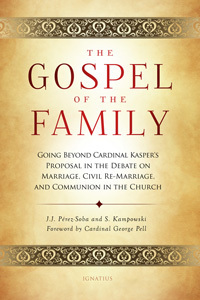
by Stephan Kampowski and Juan José Pérez-Soba
Foreword by Cardinal George Pell
Walter Cardinal Kasper created an international media stir when he proposed allowing divorced and civilly remarried Catholics to receive the sacraments after a penitential period. But is this something the Church can even authorize?
As the Church enters into the Extraordinary Synod of Bishops on Marriage and the Family, this book takes up the Kasper Proposal and sorts the helpful from the problematic. Never separating pastoral concerns from doctrinal considerations, the authors engage Cardinal Kasper’s ideas with respect, but also at times with some profound disagreement.
How can we heal the wounds of a broken culture? How do we best support families, given the challenges of modern life? What is truly merciful? If the family is central to both society and the Church, how do we best express the truth of its importance? As the authors delve into the matter, they discuss how the early Church addressed issues of marriage and separation, and review the history of Church practice and discipline on marriage. They also explore how contemporary moral attitudes have shaped modern perceptions of marriage and divorce, and how the Church can offer pastoral guidance in this area.
The good points of Cardinal Kasper’s proposal are discussed, but also the ways in which his proposal falls short in presenting the “Gospel of the Family” as the center of our understanding of married life. Stay informed with this essential guide to one of the most important debates in the Church today.
Stephan Kampowski is an associate professor of philosophical anthropology at the Pontifical John Paul II Institute for Studies on Marriage and Family in Rome. He is a coordinator of the masters in bioethics and formation organized in conjunction with the Bioethics Institute of the University of the Sacred Heart, Rome. His two other books in English are Arendt, Augustine, and the New Beginning and A Greater Freedom: Biotechnology, Love, and Human Destiny.
Juan José Pérez-Soba is a priest of the Diocese of Madrid, Spain. He is the director of international research in moral theology at the Pontifical John Paul II Institute in Rome, where he is a professor of pastoral theology. His other publications include El corazón de la familia, Il mistero della famiglia, and La pastorale familiare.
September 17, 2014
This is the story of a glorious defeat, read it today!
NEW FROM

"A fascinating and compelling narrative;
a story of discovery, adventure
and eventual homecoming,
all told with verve and honesty."
— Malcolm Guite, Girton College, Cambridge

Not God's Type
An Atheist Academic Lays Down
Her Arms
By Holly Ordway
Chapter 1
A GLORIOUS DEFEAT
Here I set out to do what might seem to be a straightforward task: to recount how it happened that I walked away from atheism and entered into Christian faith.
But the story is not a simple one to tell.
When I said Yes to Christ, I thought I had reached the end of my journey, but I found that I had merely crested the nearest hill. The road, it seemed, went ever on and on, and I soon realized that the Christian life was not going to be easy...
KEEP READING
Hardcover, $19.95, 215 pages
eBook also available.
Buy Now
Save 20%* on
more compelling conversion stories below.
Enter the code CONVERT at checkout to save today!
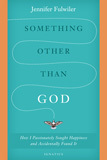
Something Other
Than God
Jennifer Fulwiler
$22.95
eBook and audio book on CD also available.
Related item:
From Atheism
to Catholicism CD
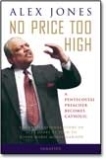
No Price Too High
A Pentecostal Preacher Becomes Catholic
Alex Jones
$15.95
eBook also available.

Rome Sweet Home
Scott Hahn
and Kimberly Hahn
$15.95
eBook, audio book on CD and Spanish version also available.
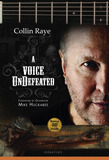
A Voice Undefeated
Collin Raye
$26.95
eBook and audio book on CD also available.
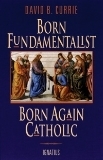
Born Fundamentalist, Born Again Catholic
David Currie
$16.95
eBook, audio download and Spanish version also available.

Edith Stein
A Biography
Waltraud Herbstrith
$14.95

The Ear of the Heart
Mother Dolores Hart and Richard DeNeut
$24.95
eBook and audio book on CD also available.

Crossing the Tiber
Steve Ray
$18.95
eBook also available.
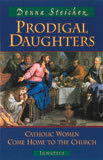
Prodigal Daughters
Catholic Women Come Home to the Church
Donna Steichen
$16.95
eBook also available.
*This offer is valid online only from September 10, 2014
until September 17, 2014 midnight EST.



Website


YouTube
Copyright © 2014 Ignatius Press, All rights reserved.

Share

Tweet

Forward
Related articles
 New: "Not God's Type: An Atheist Academic Lays Down Her Arms"
New: "Not God's Type: An Atheist Academic Lays Down Her Arms"
September 16, 2014
Casualties of the Device Age

(© Rawpixel - Fotolia.com)
Casualties of the Device Age | Thomas M. Doran | CWR blog
Technology is not bad in itself but technological advances correspond to a decline in the ability to reason, contemplation, and self-discipline
I have an idea for a science fiction story featuring a race of brilliant creatures that invade Earth.
Wait a minute, you’re saying. This story has been told a thousand times, and better than you can tell it!
Not so fast, say I. This time, the invaders are militarily inept: no destructive weapons, electromagnetic rays, biological agents. These beings “benignly”, and clandestinely, help us to invent calculating machines; then computers; then PCs; then the host of communication, information, and entertainment devices we have today.
You probably suspect that the invaders plan to make these devices so intelligent and so powerful that they take control of mankind, or maybe the aliens intend to introduce brain-controlling waves into these devices to hypnotize the human race.
Nope. These creatures merely wait patiently for humans to become dependent on, and addicted to, these devices. When the vast majority of the human race is incapable of thinking and deciding for themselves, the invaders arrive and take control, to the delight of humans who can’t be bothered with anything, except the entertainment and stimulation these devices provide.
Maybe my aliens are similar to Isaac Asimov’s Second Foundation, or The Twilight Zone’s Monsters on Maple Street, or the world controllers of Aldous Huxley’s Brave New World, but none of these anticipated the extent to which personal devices have transformed human perception and behavior.
Many of us are close to this disassociated, even somnambulistic, state today, and almost all of us—if we are honest with ourselves—fall into this rut occasionally.
September 15, 2014
Memories Make the Future
Memories Make the Future | Fr. John Navone, SJ | Homiletic & Pastoral Review
Remembering is essential to the life of the people of God
The eucharistic worship of the Christian community is a response to the imperative of divine love: “Do this is commemoration of me” (Lk 22:19). The eucharistic celebration reenacts Christ’s sacrifice and expresses the Church’s remembering: “This is my body which shall be give up for your; do this in remembrance of me” (1 Cor 11:24-25; Heb 10:3). The accounts of the institution of the eucharist indicate that the saving power present in the past event is operative each time that event is “remembered” (anamnesis) in a cultic reenactment that bespeaks the dynamic communion of God and his people.
The community of faith throughout the entire biblical tradition has been called to tell its story to others. Jesus affirmed that those who love him will keep his word and share it with others (Jn 14:24); that the Spirit, whom his Father will send us in his name, will teach us the meaning of his life story and remind us of it (Jn 14:26). Loving the Lord means remembering his story and making it our own through the gift of his Spirit. In fact, our communicating his Spirit in word and deed tells his story and witnesses to his presence (Jn 16:27). Loving him means keeping his commandments to love one another (Jn 14:15), sharing with others what God has done for us, and is continuing to do for us through the gift of his Spirit, which motivates and impels our telling of God’s goodness. Remembering and telling the story is our sharing of God’s goodness in compliance with the commandment/law to love one another. The lex narrandi obliges the community of faith to tell of God’s wonderful deeds; it demands that their goodness be shared and communicated.
The Psalmist summons the community of faith to tell this story because of its God-given responsibility for the faith and hope of future generations:
Listen to this law, my people…
what we have heard and known for ourselves,
and what our ancestors have told us,
must not be withheld from their descendants,
that is: the titles of God, his power
and the miracles he has done.
When he issued the decrees for Jacob
and instituted a law in Israel,
he gave our ancestors strict order
to teach it to the children;
he next generation was to learn it,
and children still to be born,
and these in their turn were to tell their own children
so that they too would put their confidence in God,
never forgetting God’s achievement,
and always keeping his commandments. (Ps 78:1-7)
We must remember the story of God’s saving deeds, and tell it because we are responsible for communicating our God-given faith and hope to others.
Liberalism, Choice, and Compulsion

(© kantver - Fotolia.com)
Liberalism, Choice, and Compulsion | James Kalb | CWR
Contrary to what many people believe, no society can maximize free choice and all societies involve some sort of compulsion
Social liberals consider traditional moral restrictions cruel in their very essence. Each of us, they believe, should be as free as possible to pursue his happiness as he sees it, consistent with the equal ability of others to do the same.
To reject that position, as Catholics and other moral traditionalists do, is either intentionally to block happiness or to substitute the judgment of the powerful for that of the individual with regard to his own most basic concerns. And that, progressives say, is cruel, oppressive, or both.
It’s easy enough to find situations that seem to support the argument. If marriage is a specific sort of arrangement that imposes binding obligations backed by social authority, some people will find themselves caught in difficult situations that don’t get better. So in a morally traditional society some people will have enduring problems they could have gotten out of in a more liberal one.
An easy counter argument, supported by the facts, is to point to ways in which the socially liberal approach has evidently decreased happiness, for example by weakening family connections. A fallback argument for liberals is to say that regardless of how well traditional arrangements might work in theory, any attempt to restore or even preserve them would be tyrannical as well as ineffective.
This fallback is important and deserves discussion. The idea seems to be that an attempt to promote things like cultural coherence or functional sexual roles and standards would have to rely on social policies involving supervision, control, punishment, and exclusion. People would resent the meddling and wouldn’t go along. If traditionalists thought it would be good for young men and women to put more emphasis on getting married and starting families, for example, doing something about it would involve things like stigmatizing gays and singles, bed checks to prevent fornication, and telling women they can’t have demanding careers. How could such an effort be organized, and why expect it to work?
The question, then, is how a society that is morally more traditionalist could come about: if it’s not an option, or the means that would be required seem intolerable, we might as well forget about it. The answer to that question, not surprisingly, depends on the same issues regarding what people are like and how society works that are behind the culture war in general.
That war reflects the liberal view of man and the world.
September 13, 2014
Walking with Chesterton

Walking with Chesterton | K. V. Turley | CWR
Once a year, a group of admirers of G.K. Chesterton make a 30-mile pilgrimage from the site of his birth to his grave. This year’s trek included several Chestertonian touches.
Just before 8 am, on July 30, 2014, I made my way to a church in Kensington, London. As I drew nearer I saw smoke rising, and, nearer still, found a young man puffing on a fat cigar. It was then I knew I had arrived at the right place.
I had come to join the Catholic G.K. Chesterton Society’s annual pilgrimage, now in its fourth year. This consisted of a trek from the center of London, beginning at the church Chesterton was baptized in, to the place he now lies buried, some 30 or so miles away in the country town of Beaconsfield. The young man greeted me with a smile as I sat down and waited for others to join us. That said, there was no telling who was going to turn up. On its inaugural outing, the walk consisted of only two people, one of whom was the organizer, Stuart McCullough. So, if nothing else, having spoken to him earlier that week, I was expecting at least one other to arrive. He had better, I thought, as he had the route map.
London at that time of a summer’s day is particularly fine, but that morning the street we waited on was bathed in a gentle sunlight, and, it was through this, with a broad smile on his face, that our leader was to stride. Stuart is a Chestertonian character in his own right. He is as good-natured as he is unflappable, as humorous as he is determined. When not organizing excursions such as this, he is to be found running, with his wife, Clare, the Good Counsel Network, a charity for women who find themselves pregnant with few options available if plenty of “wolves” circulating. It is a venture few would have dreamed possible. And yet, starting with just a few hundred pounds, the McCulloughs have established a permanent presence in central London that has offered, and offers still, hope to many.
Stuart may be a serious man in many respects, but like many in the pro-life cause he wears it lightly. And so, as one might expect, the Catholic G.K. Chesterton Society is all a bit of a joke. When first come across, the expectation is of meetings and chairmen, conferences and annual dinners—not a bit of it. Its sole purpose is the yearly pilgrimage. The society has no members as such, no permanent abode; it is invisible except for the band of pilgrims assembling yearly on a London street, a band with no banners, with most of those assembled strangers to one another, and with a lone map—not only do I think Chesterton would have approved, I think he would have laughed out loud.
Just after 8 am we set off.
The Cross: An invitation to Faith, to Life, and to Love
On the Readings for the Feast of the Exaltation of the Holy Cross | Carl E. Olson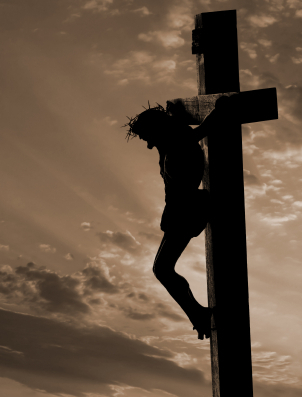
Readings:
• Nm 21:4b-9
• Ps 78:1bc-2, 34-35, 36-37, 38
• Phil 2:6-11
• Jn 3:13-17
“By its elevation, the Cross is like an appeal to the whole creation to adore the blessed Passion of Christ our God who was suspended on it, for Christ destroyed by this Cross the one who had destroyed us.”
These words, from the Vespers celebrated on this feast day by Byzantine Catholics, proclaim some of the mystery, hope, and paradox of the Holy Cross. There is the mystery of the death of the God-man, the hope of salvation because of His death and Resurrection, and the paradox of finding joy in such a bloody reality. In the words of the Crucified One, prior to His ascent onto the Cross: “And when I am lifted up from the earth, I will draw everyone to myself” (Jn 12:32).
Today’s Epistle and Gospel readings focus on the relationship between the Incarnation—the entrance of God into history as the man Jesus Christ—and the exaltation of the Incarnate One by His death on the Cross. That relationship is, of course, at the heart of Christianity, for belief in the Incarnation and the salvific work accomplished on the cross are central for Christians. If Jesus was not truly God and truly man, Christianity is simply another school of ethics; if the Passion and Resurrection did not take place, Catholicism is merely a ritualized exercise in empty piety.
The reading from Paul’s Epistle to the Philippians is a great Christological hymn offered in thanksgiving for the Incarnation. Although the Son was equal to the Father, He emptied Himself. What does that mean? Much scholarly ink has been spilled over this difficult theological question, but the essence of this emptying, or kenosis, is the perfect acceptance of God’s will. The willingness of the Son to be sent by the Father for the salvation of man is a major theme in the Gospel of John. “You know me and also know where I am from,” Jesus declared in the Temple, “Yet I did not come on my own, but the one who sent me, whom you do not know, is true” (Jn 7:28).
This can also be seen in the third chapter of John, in which Jesus states that God “gave his only Son” and sent His Son into the world so “the world might be saved through him.” In that same discourse to Nicodemus, Jesus stated that no one has gone up to heaven except the one who has come down. This is one of many claims to divinity made by Jesus, who foretold His death, Resurrection, and Ascension, even as He revealed that He had been sent by and from the Father in heaven.
This raises a significant point about the Cross: it is not a sign of God’s wrath, but a concrete demonstration of His love for man. The Romans used the cross to punish, kill, and control. God used the altar of the Cross to forgive, to destroy death, and to offer eternal life. “Accordingly, in the New Testament the Cross appears primarily as a movement from above to below,” wrote Joseph Ratzinger in Introduction to Christianity, “It stands there, not as the work of expiation that mankind offers to the wrathful God, but as the expression of that foolish love of God’s that gives itself away to the point of humiliation in order thus to save man; it is his approach to us, not the other way about.”
The Cross, then, is an invitation to faith, to life, to love. It is a revelation of the nature of God. It is also a sign of contradiction and a source of scandal. This is what Jesus meant when He spoke of being lifted up. I know people who, when they see a crucifix, are disgusted and appalled. I also know a young lady who, after being an atheist for several years, finally crumbled on her knees before a crucifix and wept, broken and healed.
“We exalt his Name with great rejoicing,” continue the Vespers, “and glorify his infinite condescension.” Amen!
(This "Opening the Word" column originally appeared in the September 14, 2008, edition of Our Sunday Visitor newspaper.)
September 12, 2014
Islam, Violence, and the Nature of God

Islam, Violence, and the Nature of God | Dr. R. Jared Staudt | CWR
Where and why Catholics agree—and disagree—with Muslims
Although the topic of violence in Islam is a controversial one, Benedict XVI placed it at the center of his treatment of our knowledge of God within his often misunderstood and misrepresented Regensburg Lecture, given eight years ago, on September 12, 2006. Put simply, false views of God’s nature can lead to religiously motivated actions, such as terrorism and violent persecution, which are contrary to the nature and will of God. This discussion is all the more timely and important as the United States marks the anniversary of the attacks on September 11, 2001, as radical Islamist groups such as ISIS persecute Christians in Iraq and other countries, and as Catholics seek ways to move forward in authentic and meaningful dialogue with Muslims.
Do Christians and Muslims worship the same God? A number of prominent Catholic apologists and bloggers have addressed this question recently. This essay will briefly summarize and comment on each of their arguments. It will then present some further thoughts arguing that the question requires assistance from philosophy: how do we know God correctly, or more precisely, how do we get knowledge of God wrong?
Recent arguments
The first piece addressing this question is Tim Staples’ “Do Muslims Worship the Same God Catholics Do?” Staples attempts to strike the right balance on what Islam gets right and wrong. He quotes two of the key magisterial statements on the topic, the Catechism of the Catholic Church and Nostra Aetate, which seems, at first glance, to seal the argument: “The Church regards with esteem also the Moslems. They adore the one God, living and subsisting in Himself; merciful and all-powerful, the Creator of heaven and earth, who has spoken to men.” Staples acknowledges that Muslims get much wrong about God and his will for men, and therefore, sets forth the following compromise on Islam:
September 10, 2014
How can a marriage be accidental?
This question and others answered in an unconventional story of love
San Francisco, September 9, 2014 – What does heroism look like? When does friendship become too costly? Do we ever truly touch one another, or are we doomed to walk alone forever? Can love survive trials, or does it inevitably wither and die? And what happens when an “accidental marriage” shows two people the power of sacrificial love?
The Accidental Marriage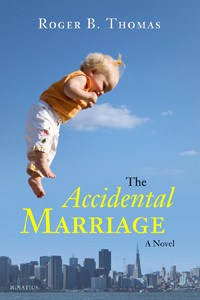 , an engaging new novel by Roger Thomas, is a contemporary story that explores these questions through vibrant, sympathetic characters whose struggles and triumphs illustrate that love doesn’t always look like you would expect.
, an engaging new novel by Roger Thomas, is a contemporary story that explores these questions through vibrant, sympathetic characters whose struggles and triumphs illustrate that love doesn’t always look like you would expect.
Scott and Megan are friends who live and work in the vibrant San Francisco Bay Area. Mostly contented with their jobs and same-sex relationships, they meet for lunch and sympathetic conversation from time to time.
When Megan’s partner wants a baby, Scott offers to help. The ensuing complications force Scott and Megan to grapple with how much they’re willing to sacrifice for friendship and for the child they’ve conceived. When Megan’s situation unravels, Scott must step up to responsibilities he’s never assumed before. Then his circumstances start to crumble, and a series of misfortunes strip them of everything but each other.
Author Roger Thomas explains why he wrote this unique novel, “As St. John Paul the Great frequently reminded us, one of the roles of the arts is to reach across those walls and reconnect us with each other in our common humanity. When we read a story or hear a song or see a film and find ourselves saying, ‘Yes! That’s exactly how it is!’, then we’re connecting with one another. And even as Scott and Megan find their categories getting broadened by their life experiences, I hope the readers of The Accidental Marriage come to see the main protagonists for what they are: simply humans, fellow humans searching for love.”
Jennifer Fulwiler, author of Something Other Than God, praises The Accidental Marriage, saying, “Roger Thomas plunges into the hot button issues of our day. He fearlessly explores questions about what terms like ‘love’ and ‘marriage’ really mean, all the while drawing us into the lives of eminently relatable characters.”
Michael Richard, author of Tobit’s Dog, says, “If I ever have to cross a minefield, I want to follow Roger Thomas. Mr. Thomas deftly weaves his way through the shibboleths of modernity, while flipping them on their heads with great respect, charity, and clarity. The prose is concise without being sterile, and pulls you into a story that will make you want to knock the antagonists on their butts, and urge the protagonists over each obstacle. These are real people in a real world that way too many people can no longer see through the fog they call enlightenment.”
The Accidental Marriage is “a bold critique of modern challenges to the American family and a morality tale about the complementarity of the sexes. It’s a defense of fatherhood, especially, but also of motherhood and homemaking as honorable occupations,” claims Dorothy Cummings McLean, author of Ceremony of Innocence.
Sarah Reinhard, author, reviewer, and blogger at SnoringScholar.com says, “There’s nothing accidental about how delightfully this book is written. It takes a difficult topic and explores it in ways that are unintimidating and even laugh-out-loud funny. I have no idea how to describe this book, but I’m going to have no problem sharing it, raving about it, and promoting it to anyone with ears. I absolutely loved the journey from cover to cover!”
About the Author:
Roger Thomas, a lifelong Michigan resident, has been married to his wife Ellen since 1981. They have six grown children and eight grandchildren. He is a self-employed computer consultant. He loves reading, and his favorite authors include C.S. Lewis, J.R.R. Tolkien, Rudyard Kipling, and P.G. Wodehouse. He has had two collections of short stories published by Ignatius Press, and is working on his fourth novel.
Author Roger Thomas is available for interviews about this book. To request a review copy or an interview with Roger Thomas, please contact: Rose Trabbic, Publicist, Ignatius Press at (239)867-4180 or rose@ignatius.com.
September 9, 2014
The Global Sexual Revolution and the Assault on Freedom and Family

German sociologist Gabriele Kuby is the author of "The Global Sexual Revolution: The Destruction of Freedom in the Name of Freedom" (Photo courtesy of Dr. Benjamin J. Vail)
The Global Sexual Revolution and the Assault on Freedom and Family | Dr. Benjamin J. Vail, OFS | CWR
German author and sociologist Gabriele Kuby discusses “gender mainstreaming”, the new totalitarianism, and being called a "homohater"
In early April 2014, German author Gabriele Kuby visited the Czech Republic to give a number of public presentations promoting her new book, The Global Sexual Revolution: The Destruction of Freedom in the Name of Freedom, recently translated to Czech. During her visit to Brno, I had a chance to interview Kuby about her book and ask how her Catholic perspective helps her understand one of the most important issues of our time: the continuing sexual revolution that is leading not only to private lifestyle changes but a new legal understanding of sexuality and the family.
Kuby warns that the global trend of “gender mainstreaming” threatens the fundamental understanding of our very human nature, with dire consequences for children, families, and society as a whole. For example, until 2014 users of Facebook had to indicate their sex – whether they are a man or a woman. But now the popular internet social network gives users 58 different options to indicate their gender. Also in 2014, the winner of the popular “Eurovision” song contest was an Austrian man named Thomas Neuwirth, known by his stage name Conchita Wurst, who attracts curiosity by cross-dressing in women’s clothing while wearing a thick beard. Kuby points out that these kinds of situations create confusion and real psychological and spiritual harms for individuals and society.
CWR: For the benefit of our readers, would you please summarize the main thesis of your new book?
Gabriele Kuby: After my conversion to the Catholic faith, and given my background in the study of sociology and interest in political and social developments, I began to realize that sexuality is the issue of our time. We live in a time when sexual norms are being turned completely upside down, which is unique in human history. No society does has done this. No society has ever said, “Live out your sexual drive any way you like,” but our society does. I think this issue of sexuality is the main attack on the dignity of the human being, and on society as a whole, because if a society lets go of its morality in general, and especially in the area of sexuality, it tumbles into anarchy and chaos, and this can result in a new totalitarian regime by the state.
CWR: A main theme of your book is “gender mainstreaming.” Can you educate our readers about gender mainstreaming, and explain why it is dangerous?
Kuby: The term “gender” was a grammatical term used to differentiate the genus of a word, before it was used for a political agenda. Then radical feminists discovered this word and used it to create a new ideology. I marvel at the strategic far-sightedness of knowing that you need a term to promote a new idea, and this is the term “gender.” Gender now means there is a “social sex” which can differ from you biological sex. Of course, there are cultural and historical differences in the ways people live their masculinity and femininity. But the feminist theory is, there is a social construction of sex which can be different – indeed, need not be identical to – your biological sex. And if we give up our identity as a man or a woman, and say there is no such identity, then of course the whole sexual order collapses, and anybody can have sex with anybody – which is not just a theoretical claim, but a practical claim of this movement: there are not two sexes, or two genders; there are many genders, like heterosexual men and women, homosexuals, bisexuals, transsexuals, transgender, intersexual and queer people (“queer” being a term for any kind of sexual deviance from heterosexuality).
Gender theory says our sexual orientation is the main criterion for our identity. The main value by which this is promoted is freedom. Our hyper-individualized society claims that we have freedom to choose our sex, whether we are man or woman, and it is our freedom to choose our sexual orientation. Society must not only tolerate but positively accept any kind of sexual orientation. But in fact, heterosexuality is the natural condition of our human existence, and more than 97 percent of the population of this earth is heterosexual and has an instinctive rejection of homosexuality. The people who push the gender agenda around the world of course have to start with very young children and teach them that any kind of sexual orientation is equally valid.
The whole thing is “sold,” so to speak, as ever more rights for women.
Carl E. Olson's Blog
- Carl E. Olson's profile
- 20 followers




